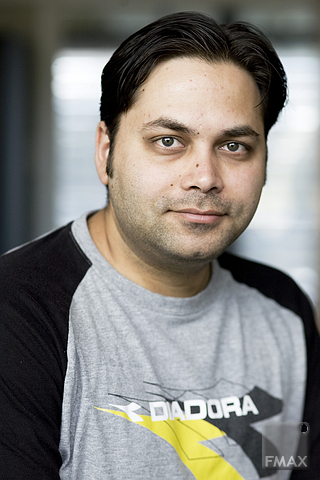Unfortunately the current technology used in wind turbines is bulky, not very efficient, and takes a long time to manufacture. This hampers the production of wind turbines.
The input energy for wind turbines comes from the blades, which convert aerodynamic force into rotation. By using a generator, this rotation can be converted into electricity, the output, just like a dynamo on a bicycle. A generator consists of rotating parts and stationary parts.
In conventional designs, electromagnets are used on the rotating part, which induces a voltage in the stationary part, and from this we get electricity. A disadvantage of this however is that there must be a large number of coils in the stationary part. In addition, all the coils must be inserted manually, one-by-one, in the generator. This process – called distributed winding – takes about one month. Another technology, called concentrated winding, uses permanent magnets, thereby reducing the number of coils by forty percent, and the entire winding process is automated, done by a machine. This hopefully reduces the manufacturing time by nearly fifty percent.
This promising technology is already being used in small generators of around 10 kilowatt, in, for example, cars and yachts, although not yet in 2000 kilowatt wind turbines. This advancement is achieved by using what are known as eddy current losses, which are currents that create counter magnetic fields to oppose the original magnetic field. But one of the consequences of this process is that the magnets are heated up so much that they risk losing their magnetism. I am researching how to minimize these kinds of losses, while retaining the advantages of shorter manufacturing times and lower costs. When at international conferences, I’ve noticed that many other universities and companies are trying to do this as well, which means many people in the world perceive this as an important step in the improvement of wind turbines.
My PhD research is actually a continuation of my MSc studies at the Electrical Power Processing group, so I’ve been living in the Netherlands for about three and a half years now. Our group consists of mixed nationalities: there are hardly any Dutch PhDs here. My interaction with the Dutch community is therefore limited. Moreover, Dutch people are not extremely open towards others, although there are exceptions. I think in India we like to blend more with other cultures. In my home country we have on average 25 percent girls, even in technical institutions. Here at TU Delft there are hardly any females, which is something many PhDs talk about quite frequently at the lunch table.”
‘Help je mee?’ ‘Altijd hè.’ In de Facebook-gesprekken, gepubliceerd op de website van De Standaard, bespraken de studenten hoe ze zouden samenwerken op het tentamen. Voor de toets verdeelden ze de stof. Achteraf schepten ze op: ‘Als dat geen samenwerking was op het tentamen.’ Toen iemand waarschuwde dat de school de berichten misschien kon lezen, schreef één van de studenten: ‘Ik denk het niet hoor.’
Surveillanten hadden de twee zien praten tijdens het tentamen, maar vonden geen hard bewijs dat ze hadden gefraudeerd. Na klachten van medestudenten stuitte de hogeschool op het Facebook-verkeer, en liet hen alsnog zakken voor de toets. De landelijke raad voor examenbetwistingen gaf de school gelijk: online gesprekken zijn een geldig bewijs voor fraude. De boodschap: laat niet iedereen je Facebook-pagina lezen. En als je echt wil spieken, stuur elkaar dan een mail.



Comments are closed.